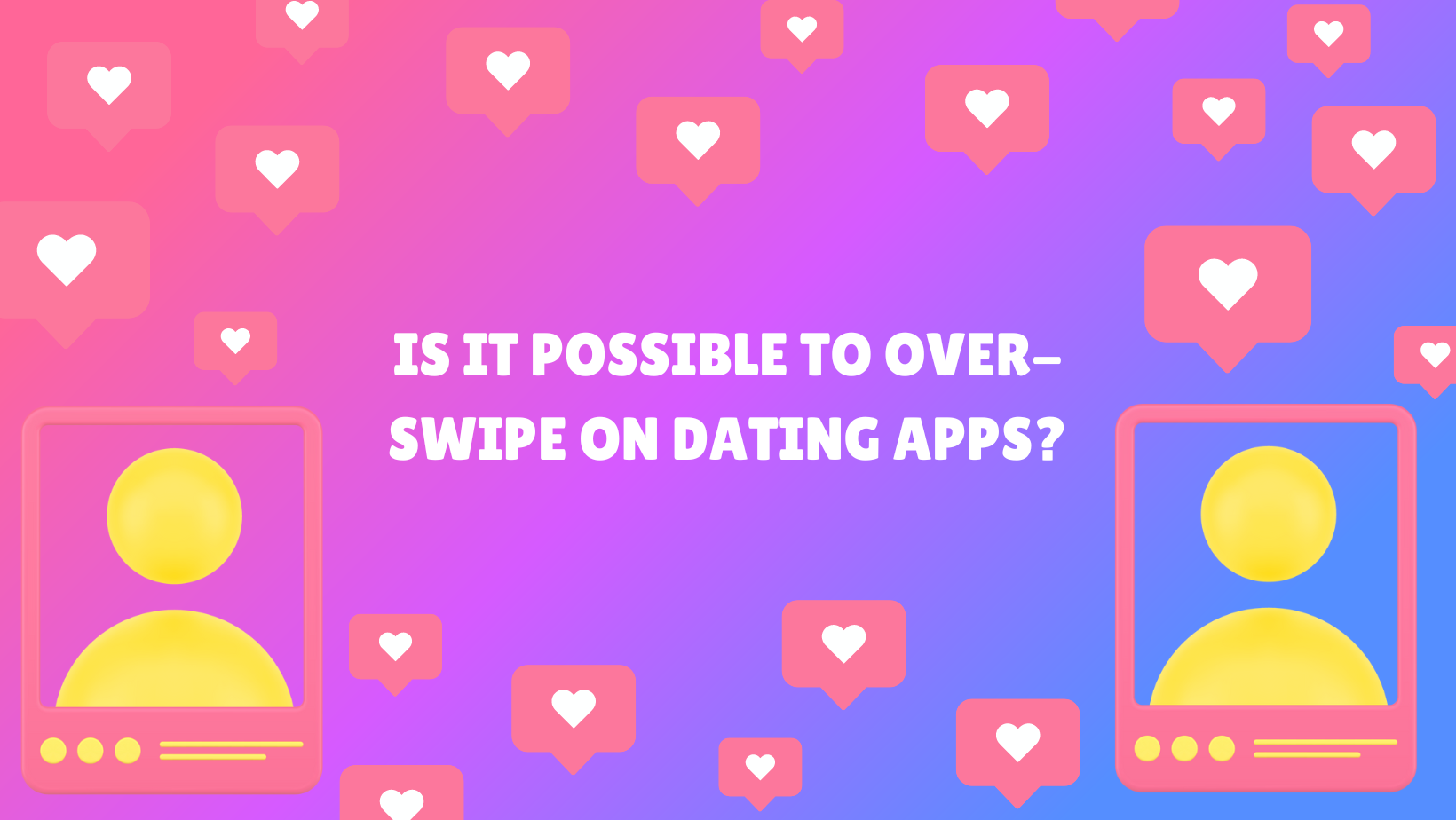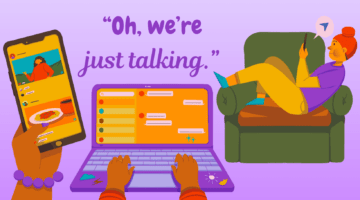Is It Possible To “Over-Swipe” On Dating Apps?
March 6, 2024 by Emily Mendelson
It’s estimated that the average American looking for love online will swipe almost 4,000 times on a dating app before finding a romantic partner. This number is a bit lower for Gen Z (about 3,500 swipes) while it is much higher for Boomers, who are projected to swipe over 6,000 times on average before finding a partner.
All this time swiping on dating apps definitely adds up! Globally, users spend an average of 35 minutes on dating apps daily, but of course, this varies greatly from one individual to the next, with some spending big chunks of their day swiping away.
So how does all of this swiping affect us and our mental health? And what happens when our swiping only yields a few matches versus a ton? Let’s explore what the data says.
The Effects of Over-Swiping
A study by a group of communication scholars at the University of Vienna investigated how excessive swiping on dating apps was related to (a) upward social comparison (i.e., comparing yourself to others who seem more attractive or better off), (b) fear of being single, and (c) partner choice overload. Their sample included 464 individuals under age 25, all of whom had experience using dating apps.
Participants were asked how frequently they use dating apps, their compulsion to keep swiping, and their approach to swiping on dating apps. The authors distinguished between two general approaches to dating app swiping: assessment mode, which is when a person is thinking critically about their decision to swipe right vs. left, and locomotion mode, which is when individuals swipe based only on gut feelings and visceral reactions to profiles.
“Excessive” swiping was defined as swiping that had a compulsive nature to it. You can think of it as being mentally preoccupied with seeing as many profiles as possible and having a hard time stopping.
The researchers found that excessive swiping behaviors were significantly associated with upward social comparison, fear of being single, and partner choice overload. In other words, swiping a lot on dating apps increased participants’ tendency to compare themselves to others they see as higher ‘status,’ which is likely to negatively affect one’s self-esteem when few matches materialize. Those who over-swipe also appeared to be overwhelmed by the number of potential partners, increasing fears of long-term singlehood.
It’s important to note that these negative effects were not inherent to all dating app users; rather, they only emerged for the excessive swipers. Further, the effects didn’t depend on whether people were swiping in assessment mode as opposed to locomotive mode. The takeaway? Using dating apps appears to be taxing on people’s mental health and well-being, but only when one’s usage of the app becomes “excessive” or takes on compulsive qualities.
Are More Matches More Preferable?
The same group of researchers conducted a second study that was focused on whether the number of matches women received were related to loneliness and partner choice overload. This time, their sample was comprised of 125 undergraduate women whose ages ranged from 18 to 35. After submitting a picture of themselves they would use on a dating app, participants rated 31 other profiles of individuals who had allegedly already rated them.
Participants were assigned to one of two conditions: they either matched with most other profiles (27 of 31 cases), OR they only matched a few times (3 out of 31 cases). After participants finished the experimental task, they were asked about their (a) state loneliness, (b) fear of being single, and (c) partner choice overload.
Perhaps surprisingly, the number of matches an individual received did not influence participants’ overall state loneliness nor their fear of being single. These findings challenge some popular assumptions that loneliness can be resolved by dating apps, as well as the idea that loneliness is caused by dating apps when individuals receive very few matches.
That said, participants who had a high number of matches (27 out of 31) experienced higher partner choice overload than those in the lower-match condition. Put another way, fewer matches may not necessarily be a bad thing! Participants who had the chance to match with a larger number of individuals appeared to be overwhelmed by the number of potential partners to choose from, which might very well exacerbate excessive swiping behaviors because there are just too many to deal with. Choice overload, then, may act like a self-fulfilling prophecy where individuals who are already feeling overwhelmed continue to match with others in search of the “perfect” partner, which only increases the number of matches (and corresponding cognitive demand) even further.
Finding Your Swiping (and Matching!) Stats
If you’re a Tinder user, you’re actually able to see your own swiping and matching stats if you’re interested in putting some of your dating app behaviors in context. The Reddit page r/TinderData has a lot of interesting examples of users posting their own data, and from looking at just a few examples, it seems like some people are swiping way more than we might think.
For example, one user has swiped 129,000 times in almost 5 years of using Tinder, and another has swiped over 250,000 times in 9 years of using Tinder. However, proceed with caution. This user in r/DataisBeautiful appears to have swiped over 45,000 times in three years, and based on the data, it looks like none of his matches have led to an in-person meeting. All of this is to say that you should use dating apps in a way that work for you, but it might be a good idea to give them a break if you feel like swiping to match with others starts to become an obsession or compulsion.
Have a dating app experience you’d like to share? Questions about apps like Tinder and Bumble? Send us a podcast voicemail to have it answered on a future episode at speakpipe.com/sexandpsychology.
Want to learn more about Sex and Psychology? Click here for more from the blog or here to listen to the podcast. Follow Sex and Psychology on Facebook, Twitter (@JustinLehmiller), or Reddit to receive updates. You can also follow Dr. Lehmiller on YouTube and Instagram.

Dr. Justin Lehmiller
Founder & Owner of Sex and PsychologyDr. Justin Lehmiller is a social psychologist and Research Fellow at The Kinsey Institute. He runs the Sex and Psychology blog and podcast and is author of the popular book Tell Me What You Want. Dr. Lehmiller is an award-winning educator, and a prolific researcher who has published more than 50 academic works.
Read full bio >


